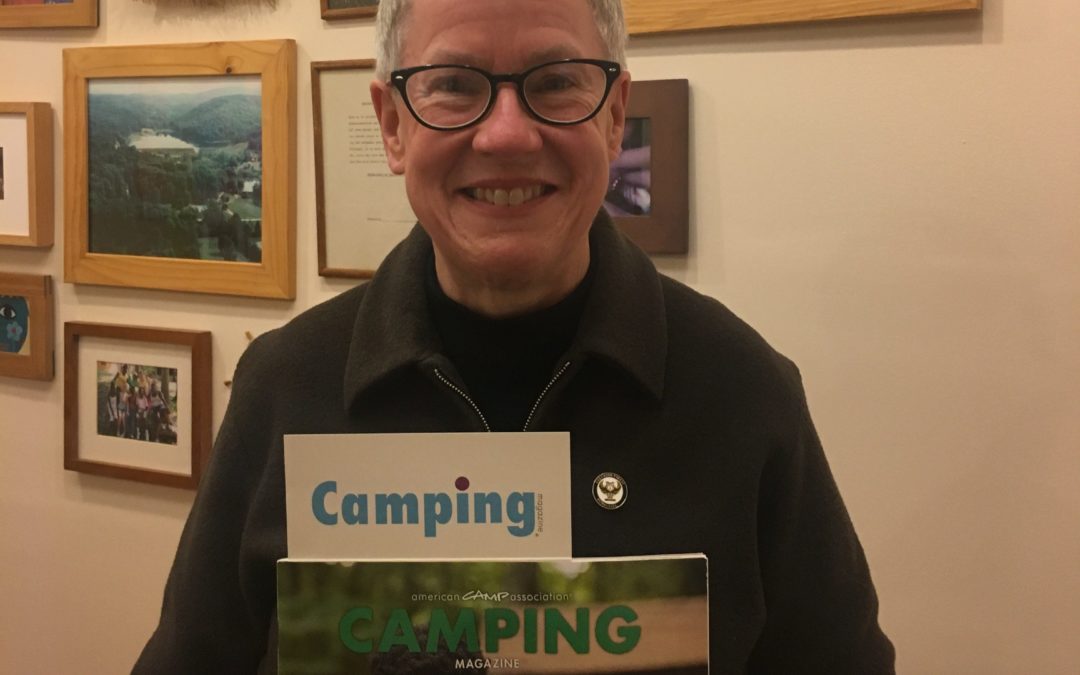Our Executive Director, Mary Rogers, recently published an article in the March/April edition of the American Camp Association‘s publication, Camping Magazine. We sat down with her to ask her more about her work with the American Camp Association (ACA) and how research informs her work.
How did you get involved in the ACA?
I have been involved with the ACA since I graduated from Sherwood Forest’s Leadership Training program at the end of my sophomore year. The Camp Director at the time, Brandy, made it clear that anyone who wanted to work at camp had to join the ACA so that they were eligible to attend the annual conference at Trout Lodge where people came from all over to learn best practices in camp.
I have continued to stay involved ever since, taking on different leadership roles along the way. Currently, I serve as the chair person for the ACA’s Committee for the Advancement of Research and Evaluation (CARE).
What got you interested in research?
What got me interested in research was going to a research institution to get my master’s degree. I wanted to understand more about child and youth development for at-risk youth. I expected to go to Harvard and come back with answers, but I came back with more questions.
My experience at a research institution made it more clear to me that the work we do isn’t just about good stories about young people’s experiences at camp, but that research can back up our stories and provide evidence. This is an even more compelling way to share how our work is making an impact.
How has research played a role in Sherwood Forest’s evolution?
Research has helped us focus. It has informed some of the program design ideas like having longer sessions, being more intentional about outcomes, and developing a follow-up program (Supports for Success).
What is the most surprising thing you’ve learned through research?
One of the most surprising things that I’ve learned in the research process is that one of the best places to figure out how to get better is to look at the places where you’re not very good.
For example, in 2013, when we finished compiling scores from the Youth Outcomes Battery, we realized our teamwork scores for girls were really low. When I talked through the numbers with the staff, we realized that this was great data. We were able to meet with the girls to help find out how they could feel more successful. During meetings during the school year, we worked with the girls to improve their feelings towards each other, and the next summer we improved the score. Researched provided us with the opportunity to get better.
How are you planning to use research in the future?
This summer we will measure campers’ affinity for nature for all grades. This has historically been our campers’ lowest score and we want to make it better. We are working to improve this.
You can read Mary’s full article here.
